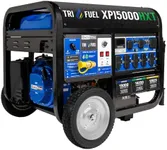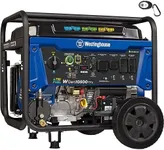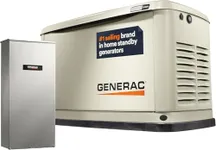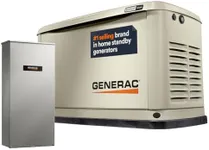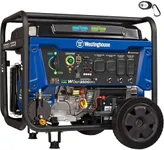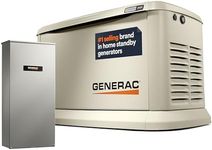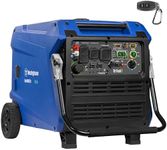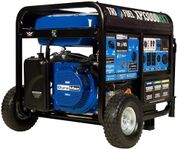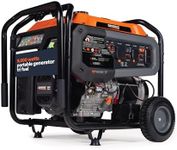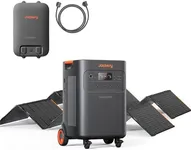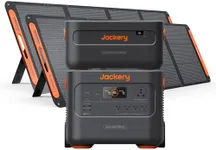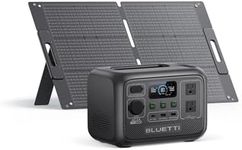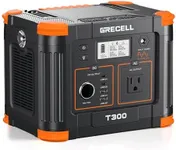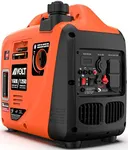Buying Guide for the Best Generators For Home Use
Choosing the right generator for home use can be a crucial decision, especially if you live in an area prone to power outages. A generator can provide you with the necessary power to keep your essential appliances running during an outage. To make an informed decision, you need to understand the key specifications and how they align with your needs. Here are the main specs to consider when selecting a generator for home use.Power Output (Wattage)Power output, measured in watts, indicates how much electricity the generator can produce. This is important because it determines how many and what type of appliances you can run simultaneously. Generators typically range from 1,000 watts to over 10,000 watts. For basic needs like lights, a refrigerator, and a few small appliances, a generator with 3,000 to 5,000 watts should suffice. For more extensive use, such as running multiple large appliances or an HVAC system, you may need a generator with 7,000 watts or more. Assess your power needs by listing the essential devices you want to power and their wattage requirements.
Fuel TypeGenerators can run on various types of fuel, including gasoline, propane, natural gas, and diesel. The fuel type affects the generator's runtime, maintenance, and availability of fuel. Gasoline generators are common and easy to refuel but have a shorter shelf life for fuel. Propane generators are cleaner and have a longer shelf life but may require a larger storage space for fuel tanks. Natural gas generators are convenient if you have a natural gas line but are less portable. Diesel generators are fuel-efficient and durable but can be noisier and more expensive. Choose a fuel type based on availability, storage, and your preference for maintenance and environmental impact.
RuntimeRuntime refers to how long a generator can operate on a full tank of fuel. This is important for determining how often you will need to refuel the generator during an extended power outage. Generators with larger fuel tanks generally have longer runtimes. For example, a generator with a 5-gallon tank might run for 8-10 hours at 50% load. If you need a generator to run overnight or for extended periods without frequent refueling, look for models with longer runtimes. Consider your typical power outage duration and how often you can realistically refuel the generator.
PortabilityPortability refers to how easy it is to move the generator around. This is important if you need to transport the generator to different locations or store it when not in use. Portable generators typically come with wheels and handles for easier movement. Smaller generators are lighter and more portable but may have lower power output. Larger generators provide more power but can be heavier and harder to move. If you plan to use the generator in multiple locations or need to store it away when not in use, consider a portable model that balances power output with ease of movement.
Noise LevelNoise level, measured in decibels (dB), indicates how loud the generator will be during operation. This is important for maintaining a comfortable environment, especially if you have close neighbors or plan to use the generator near living spaces. Generators can range from 50 dB (quiet) to over 80 dB (loud). Inverter generators are typically quieter and suitable for residential areas. If noise is a concern, look for generators with lower decibel ratings or those specifically designed to operate quietly. Consider where you will place the generator and how much noise you and your neighbors can tolerate.
Start TypeStart type refers to how the generator is turned on. Common start types include manual recoil start, electric start, and remote start. Manual recoil start requires pulling a cord, which can be physically demanding. Electric start uses a push-button or key, making it easier to start the generator. Remote start allows you to start the generator from a distance using a remote control. Choose a start type based on your physical ability and convenience. If you prefer ease of use, an electric or remote start may be more suitable.
Safety FeaturesSafety features are important to protect both the generator and your home. Key safety features include automatic shutoff for low oil levels, overload protection, and carbon monoxide (CO) detectors. Automatic shutoff prevents engine damage by turning off the generator when oil levels are too low. Overload protection prevents the generator from being damaged by excessive power demand. CO detectors shut down the generator if dangerous levels of carbon monoxide are detected, preventing CO poisoning. Prioritize generators with these safety features to ensure safe operation and protect your investment.
